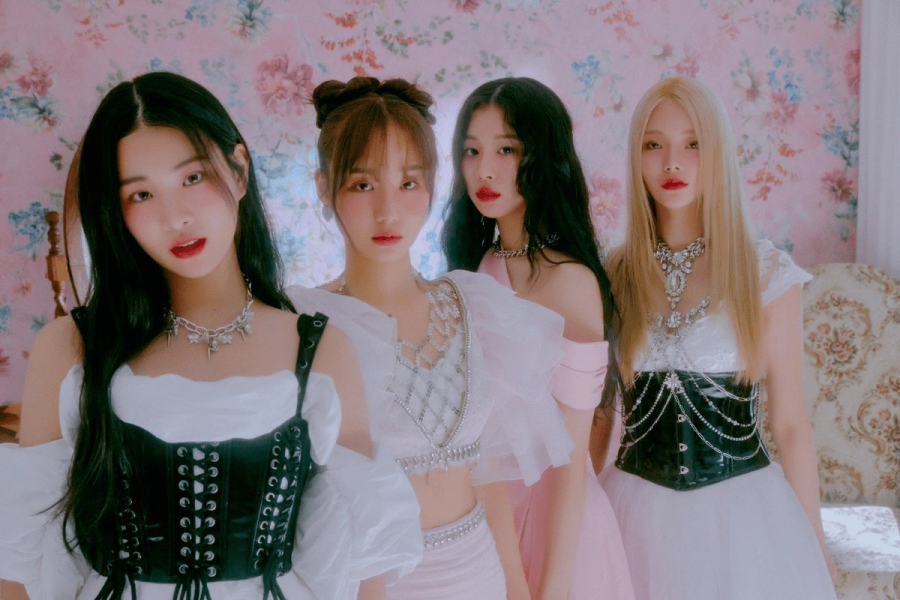Beneath the Glamour of K-pop
Content Warning: Mentions of disordered eating and suicide.
Paired with an upbeat, nostalgia-inducing tune, the lyrics “I gave a second chance to Cupid” have recently gone viral on several platforms. Seemingly everyone — heartbroken or heart stolen — is humming along to it.
You might be surprised to learn, however, that its creator is a K-pop girl group by the name of FIFTY FIFTY. In recent years, in what is described as the “Korean Wave” or hallyu, Korean media has seen overwhelming global success, especially the cultural phenomenon of K-pop. From PSY’s 2012 hit “Gangnam Style,” the first video to ever exceed a billion views on YouTube, to the massive success of boy band BTS, who single-handedly contributed to nearly 0.5% of South Korea’s GDP in 2021, it is clear that K-pop has rapidly risen as a music genre and become one of South Korea’s most profitable industries. Yet despite K-pop’s overwhelming success and its role in popularizing East Asian media as a whole, the industry utilizes several problematic practices out of the public eye. In light of May being AAPI Month, it is important to recognize K-pop for what it is — an artistic expression, a booming business, and a safe haven for many fans. But more than anything, it is an industry that presents a complex moral dilemma.
K-pop is notorious for its treatment of idols and often obsessive fanbase. At the root of these problems are the companies running idol groups, including the “Big 3” (JYP, SM, YG), who currently manage over 23 groups. In contrast to many Western entertainment companies, Korean entertainment giants tie idol groups’ identity to those of their companies. From the very beginning of the K-pop recruitment process, which often starts in adolescence, those seeking fame succumb to entertainment companies’ business schemes; the moment training begins, their public lives are relinquished to their company executives. Even further, K-pop operates under a model where idols, if they ever debut, must pay back their company for their training expenses. Often this expense comes from the small percentage of earnings that are actually given to the group; consequently, many idols must work years to pay off their debts even after “making it” as a star. For example, members of LOONA, a popular K-pop girl group who have concretely established themselves in the industry, came out with shocking news in November of 2022 — some members haven’t earned a single cent since their debut in 2016. Of course, this debt is assuming that said trainees ever debut. The path to stardom in the K-pop industry is grueling and often described as abusive. Without knowing when or if they will ever debut, training can last years, and trainees are often put through survival shows or intense training programs that pit them against each other.
It’s easy to think that, for the lucky few who are chosen to debut, all these problems fade away. However, the K-pop industry functions such that only the best of the best have secured success. Genres, concepts, dance moves, fashion, and promotion strategies fade in and out of popularity at rapid speeds, forming a highly competitive atmosphere where one slight mistake can lead to an exponential loss in relevance.

Perfection is not just expected, it is demanded; companies regularly require idols to be certain weights, put on certain personas, and get plastic surgery to fit into Korean beauty standards. In order to be part of the reality show that determined TWICE’s lineup, current member Momo ate only ice cubes to lose fifteen pounds in a single week. TWICE’s Tzuyu, a Taiwanese idol, was forced to apologize for waving the Taiwanese flag after backlash from Chinese fans. Numerous idols have committed suicide, such as Jonghyun of SHINee, who battled with the crushing pressure of being a celebrity, and Sulli, who was cyberbullied relentlessly even after asking her agency to take action. These issues have persisted since the dawn of the industry. In his suicide note, idol Jonghyun wrote: “The life of fame was not for me… It’s a miracle that I lasted this long.” In addition to the tragedy these deaths have been to the K-pop industry, it is important to recognize these deaths as systemic failures in mental health support. These individuals were far more than just idols; they were humans.
Apart from the trauma endured by K-pop celebrities themselves, it is crucial to consider the parasocial relationship between idols and fans. The K-pop industry profits through obsessive, measured interaction — constant livestreams, daily updates, fansigns, promotions, and, most prominently, idols’ assigned “personas”: carefully crafted illusions perfected to bring in more fans and more money. Ultimately, these marketing structures lead K-pop fans to form unhealthy one-sided connections on the basis of fabrication, fanservice, and false support. In some cases, those connections can turn extreme, deluding fans into obsession. One particularly disturbing case involves Nayeon, an idol from TWICE, whose stalker persisted for two years. In the process, he leaked another member’s personal phone number, posted on social media multiple times that he was traveling to South Korea to try and meet her, and even managed to get on the same flight as her. It was a harrowing experience for Nayeon, who posted an Instagram story begging the fan to leave her alone: “Please go back home. Please stop. Please, I beg you.”
It is impossible to touch on all issues within the K-pop industry, which range from cultural appropriation to sexual abuse. However, we believe it’s imperative that fans understand and know about the basic framework of the industry so they can make an informed decision about whether to support it or not. Through abuse, mental health crises, and stalking, these idols have suffered so much to reach the top and deserve to be celebrated and supported. But we cannot turn a blind eye to the questionable practices behind their ascension.

